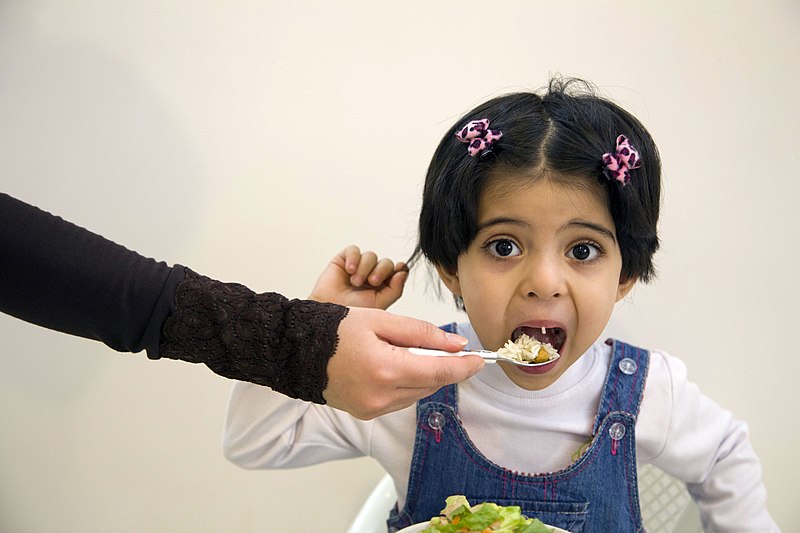Many parents these days are clueless about how to bring up a child. There is no support from a rambling family — grandparents, widowed aunt, unmarried uncle — and domestic help is not only hard to get but also unreliable. That is a huge problem for working mothers.
Feeding the child — when and how much — usually becomes an area of conflict. Parents often have unrealistic expectations but stuffing food down a child’s unwilling throat is a recipe for disaster. And starting the day with a glass of milk — especially one fortified with protein powder — is not a good idea. It fills the stomach, suppresses appetite and provides a sense of satiety which often stays the whole day, making the child refuse breakfast.
Instead, start the day with exercise. Let the child run on the terrace or in the garden for 20 minutes and then get him or her ready for school. Keep at least 30 minutes in hand for breakfast. Feeding the child because “there is no time” will lead to retching, vomiting and refusal of food. Meals need to be savoured, this takes time. There should be a fixed place for eating — in front of the television, iPad or mobile phone results in mindless eating, obesity and lifestyle diseases in later life.
Regular exercise is a must. Twenty minutes of aerobic activity morning and evening goes a long way towards improving memory, productivity and helping the child fight fatigue. It is a good idea to put the child into structured sports training or martial arts. Such children are less likely to experiment with smoking, drinking and drugs. They are also less likely to be hooked on to the Internet, suffer acute depression or attempt suicide.
There is a lot of misinformation in the media about immunisations. These injections have been developed to protect children from disease. It is necessary to immunise against diphtheria, pertussis, tetanus, polio, H. influenza, pneumococcus, rotavirus, hepatitis B and A, flu (every year), typhoid (every three years), chicken pox, measles, mumps, German measles and HPV (human papillomavirus). Some of these diseases can be fatal or leave the child with lifelong disability. Polio can cause paralysis of limbs, mumps sterility, chicken pox deafness and blindness, hepatitis B permanent liver damage, H. influenza and pneumococcus brain fever and ear impairment.
Children can be demanding, but they lack the maturity to discern between good and bad. Therefore, parents should not always give in to their requests. The approach to a child should be consistent, firm, affectionate and authoritative, not authoritarian. If something is “no” then it should remain so despite temper tantrums, pleading and “recommendations” from grandparents.
We tend to support our children and give them a sense of entitlement to opportunities they do not deserve by bending rules and paying bribes. If parents do not obey rules, they cannot expect their children to do so. (A typical example is the crash helmet rule.) Pushing them into unsuitable professional areas because of parental pressure and bribes results in failure and frustration.
Children who lead a disciplined, orderly life and are allowed to develop their interests are likely to become successful in their endeavours and realise their potential. Children who are trained to be diligent, methodical and have self-control are more likely to grow into happy adults than their careless or undisciplined peers.
The writer is a paediatrician with a family practice at Vellore and author of Staying Healthy in Modern India. If you have any questions on health issues please write to yourhealthgm@yahoo.co.in











